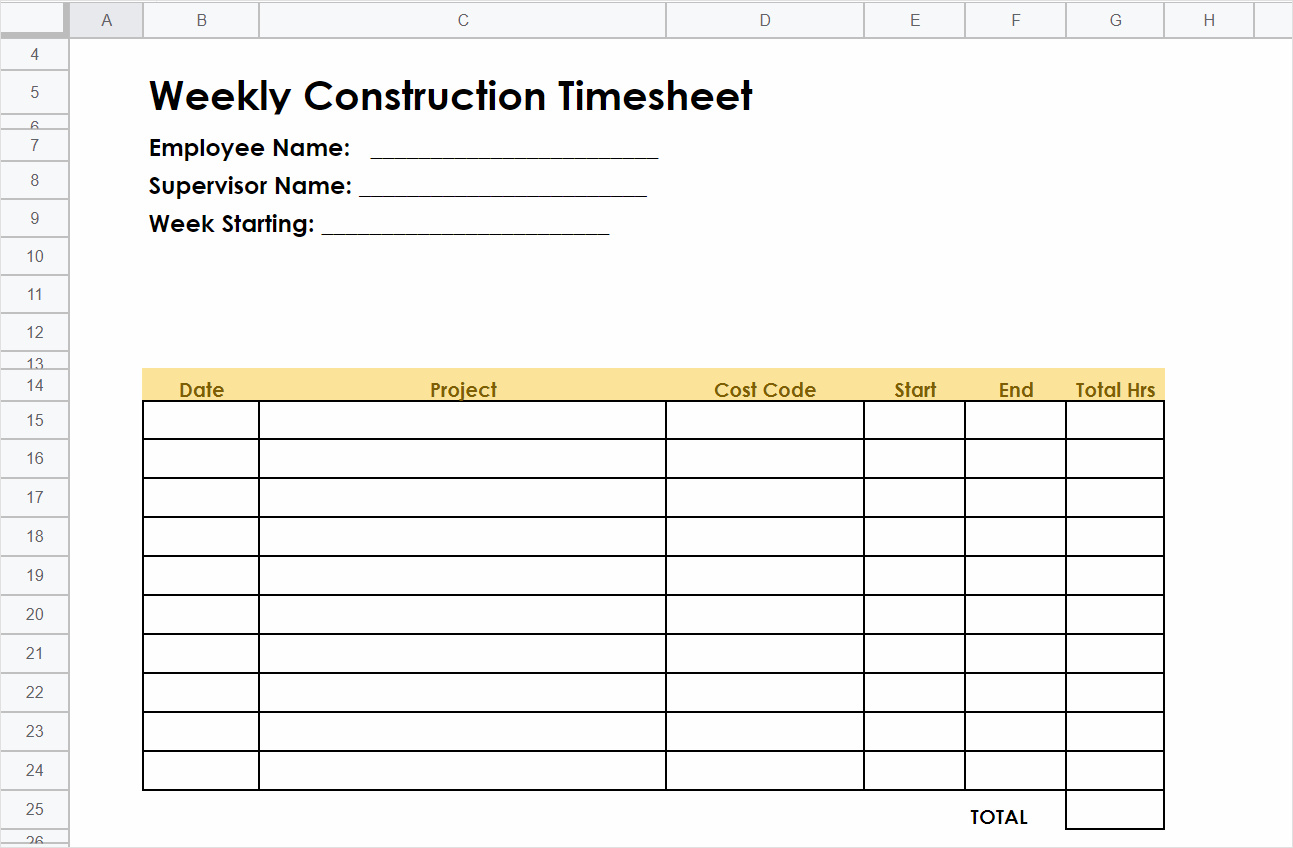Construction projects are complex endeavors that require careful planning, coordination, and tracking of resources. One essential tool that helps in managing these projects is the construction weekly timesheet. This document allows project managers to monitor the progress of the project, track employee attendance and hours worked, and ensure that the project is on schedule and within budget.
A construction weekly timesheet is a record of the time spent by each worker on the construction site. It includes information such as the date, the worker’s name, the tasks performed, and the hours worked. The timesheet is usually filled out by the worker or their supervisor and serves as a record of their daily activities on the project.
Why Do Construction Projects Need Weekly Timesheets?
Construction projects involve multiple tasks, deadlines, and resources. Without proper tracking and documentation, it can be challenging to keep everything organized and ensure that the project stays on track. Here are some reasons why construction projects need weekly timesheets:
- Accurate Time Tracking: Timesheets help in accurately tracking the time spent by each worker on the project. This information is crucial for calculating the cost of labor and ensuring that workers are paid correctly.
- Monitoring Progress: By reviewing the timesheets, project managers can monitor the progress of the project and identify any delays or issues that need to be addressed.
- Resource Allocation: Timesheets provide valuable information on the number of hours worked by each worker and the tasks performed. This data helps in allocating resources effectively and ensuring that the right people are assigned to the right tasks.
- Budget Control: Timesheets allow project managers to track labor costs and compare them to the project budget. This helps in controlling costs and identifying any areas where adjustments need to be made.
How to Create a Construction Weekly Timesheet
Creating a construction weekly timesheet is a straightforward process. Here are the steps to follow:
- Choose a Format: Decide on the format of the timesheet, whether it will be a physical document or an electronic spreadsheet.
- Include Relevant Information: Make sure to include fields for the worker’s name, date, tasks performed, and hours worked.
- Set Up a Weekly Layout: Organize the timesheet in a weekly format, with each day of the week having its section.
- Add Signatures: Include a section for the worker and their supervisor to sign the timesheet, verifying its accuracy.
- Distribute the Timesheets: Provide the timesheets to the workers and instruct them on how to fill them out correctly.
- Collect and Review: Collect the completed timesheets at the end of each week and review them for accuracy and completeness.
- Store and Archive: Store the timesheets in a secure location for future reference and audit purposes.
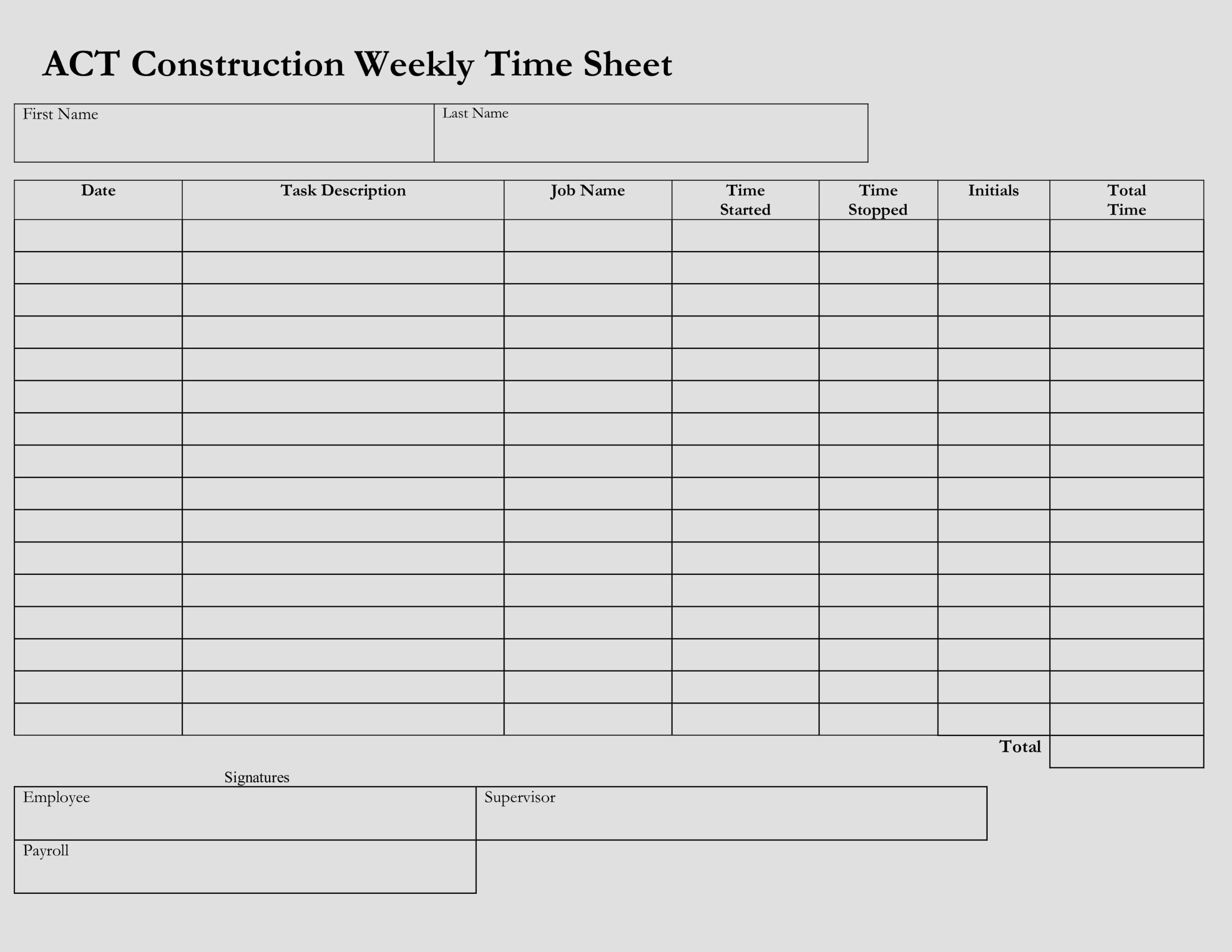
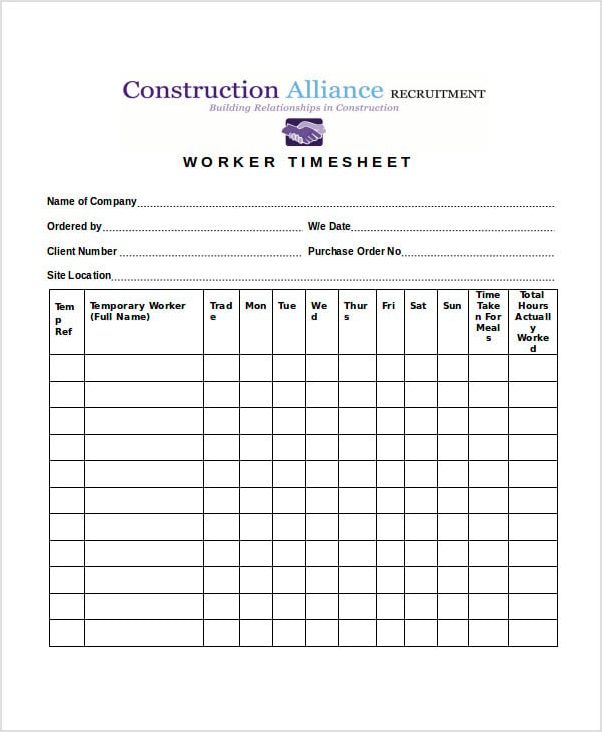
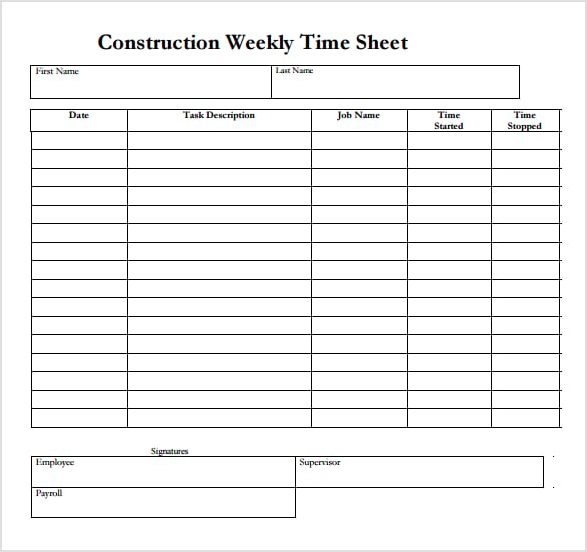
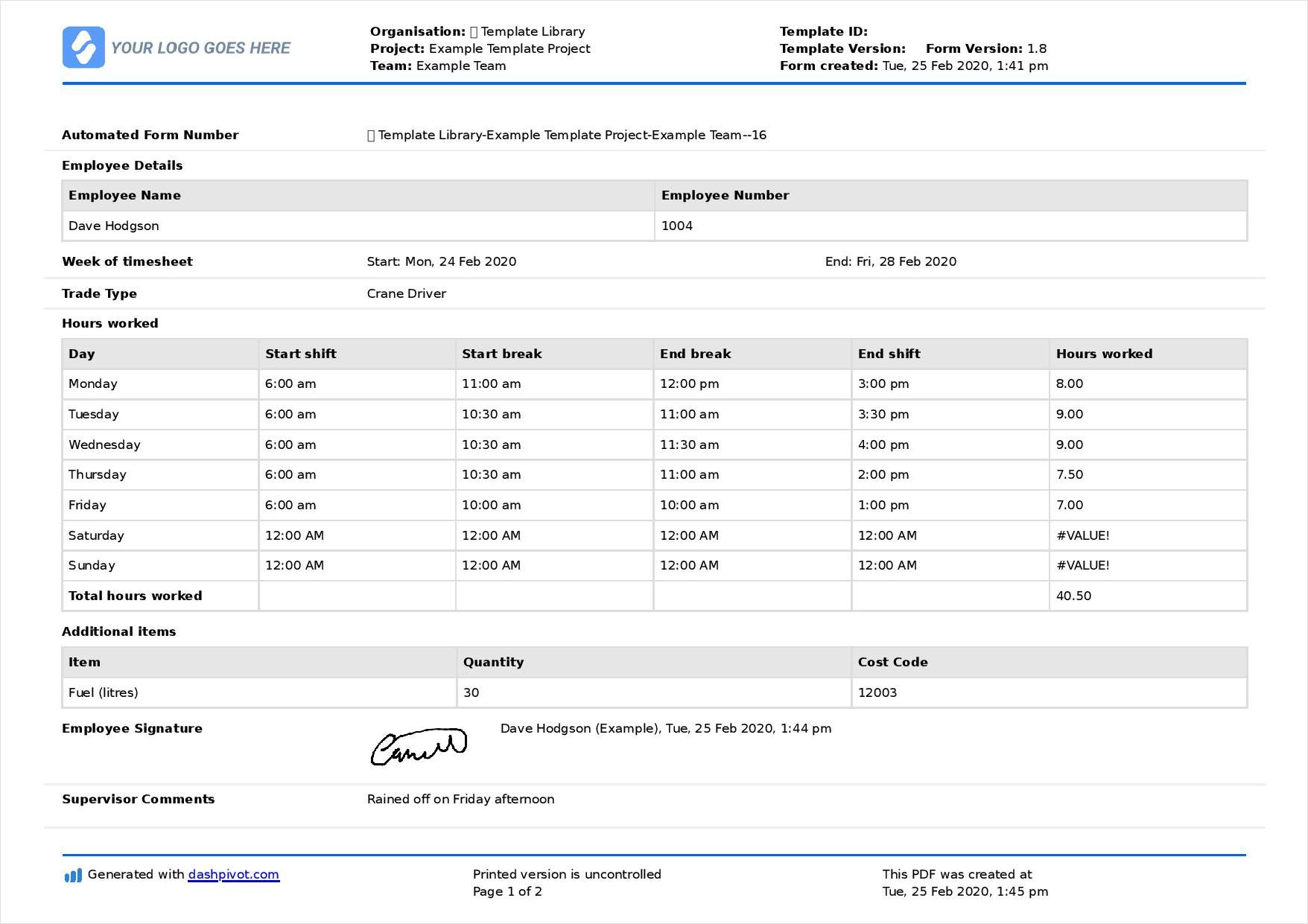
Benefits of Using Construction Weekly Timesheets
The use of construction weekly timesheets brings several benefits to both project managers and workers. Here are some of the advantages:
- Improved Accountability: Timesheets promote accountability among workers, as they need to accurately record their time and tasks performed.
- Efficient Resource Allocation: By tracking the hours worked by each worker, project managers can allocate resources more efficiently and ensure that the right skills are utilized.
- Accurate Payroll: Weekly timesheets provide accurate data for calculating employee wages, eliminating errors and discrepancies in payroll processing.
- Transparency: Timesheets provide transparency in the construction process, allowing stakeholders to track progress and identify any issues or delays.
- Data for Analysis: Timesheets generate valuable data that can be analyzed to identify trends, optimize processes, and improve future project planning.
- Legal Compliance: Timesheets serve as legal documents that can be used as evidence in case of disputes or audits related to labor laws and regulations.
Conclusion
Construction weekly timesheets play a crucial role in managing and tracking construction projects. They provide accurate data on worker attendance, tasks performed, and hours worked, helping project managers monitor progress, allocate resources efficiently, and control costs. By implementing a weekly timesheet system, construction companies can improve accountability, ensure accurate payroll processing, and enhance overall project management.
Construction Weekly Timesheet Template – Download
